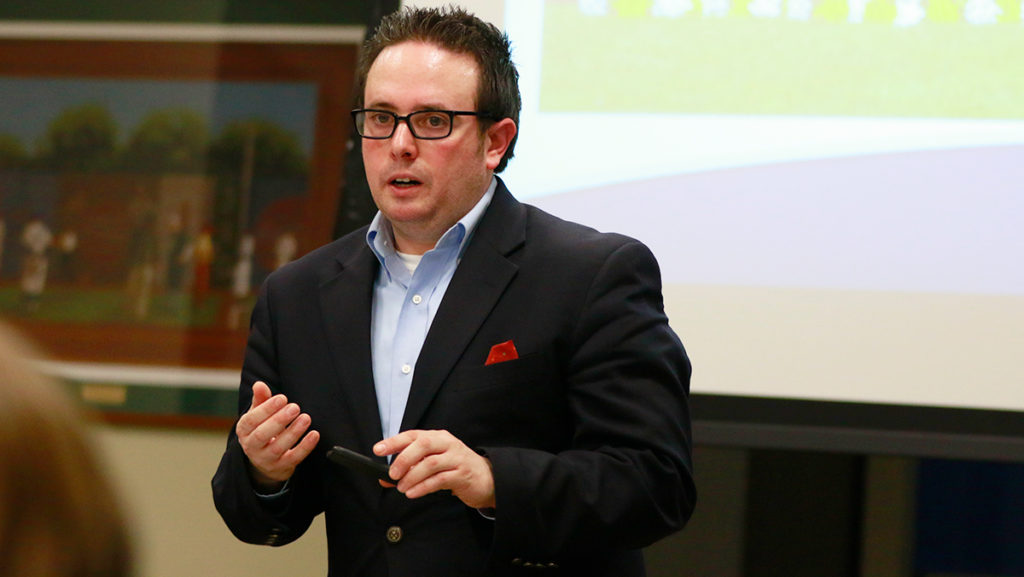The Ithaca College Student Success Committee presented a plan to the Faculty Council on March 7 on how the college can better improve retention rates of its freshmen.
Bryan Roberts, associate dean of the Roy H. Park School of Communications, and Elizabeth Bleicher, associate professor in the English department and exploratory program director, presented the plan to increase the college’s retention rate from 85.5 percent to 90 percent by 2021. This plan includes three phases: increase student wellness and mental health on campus, use technology as an integrated predictive analytics and communications solution, and increase academic engagement, Roberts said.
Bleicher said mental health improvement is the most important aspect of the plan to ensure students find success at the college.
“Students’ physical and emotional health is the biggest barrier to retention and greatest opportunity,” Bleicher said.
Roberts and Bleicher suggested adding more case workers, CAPS counselors and Student Accessibility Services specialists to better handle demands proactively instead of reacting as students request services. They cited statistics indicating a heavy workload for CAPS — it has an 1:825 counselor-to-student ratio, group therapy sessions are filled to capacity and it has a waitlist of about 150 students, according to the SSC representatives. Another reason these changes were suggested is because the college has a higher proportion of students who utilize disability services — 13.8 percent of the student body — than average, which is about 10 percent, according to the SSC.
Roberts and Bleicher both expressed that they expect to see change with incoming president Shirley Collado because she has experience in retention.
“She is a retention expert, and she is pro–student success, so I think we are about to see a lot of change,” Bleicher said.
The second order of business addressed at the meeting was an update on the Integrative Core Curriculum Advisory Committee. The committee has already met two times and will continue to meet every other week for the rest of the semester, said Jason Freitag, associate professor in the Department of History, who put forth the motion for the ICC Advisory Committee. In these meetings, the committee is working on addressing structural issues that exist within the ICC, how faculty members are working with the curriculum and whether the courses are effective, Freitag said.
The committee created two working groups to focus specifically on addressing these issues — one focusing on the themes and students within them and the other focusing primarily on faculty members and the designation of their roles regarding the ICC. Chris Hummel, clinical associate professor in the Department of Exercise and Sport Sciences, was a member of the original committee that created the ICC. He said many of the issues that the current advisory committee is addressing were brought up when designing the curriculum.
“I am really happy this advisory committee is pushing to improve,” he said.
Updates on the business discussed in the ICC Advisory Committee meetings will be posted on the Faculty Council webpage.








